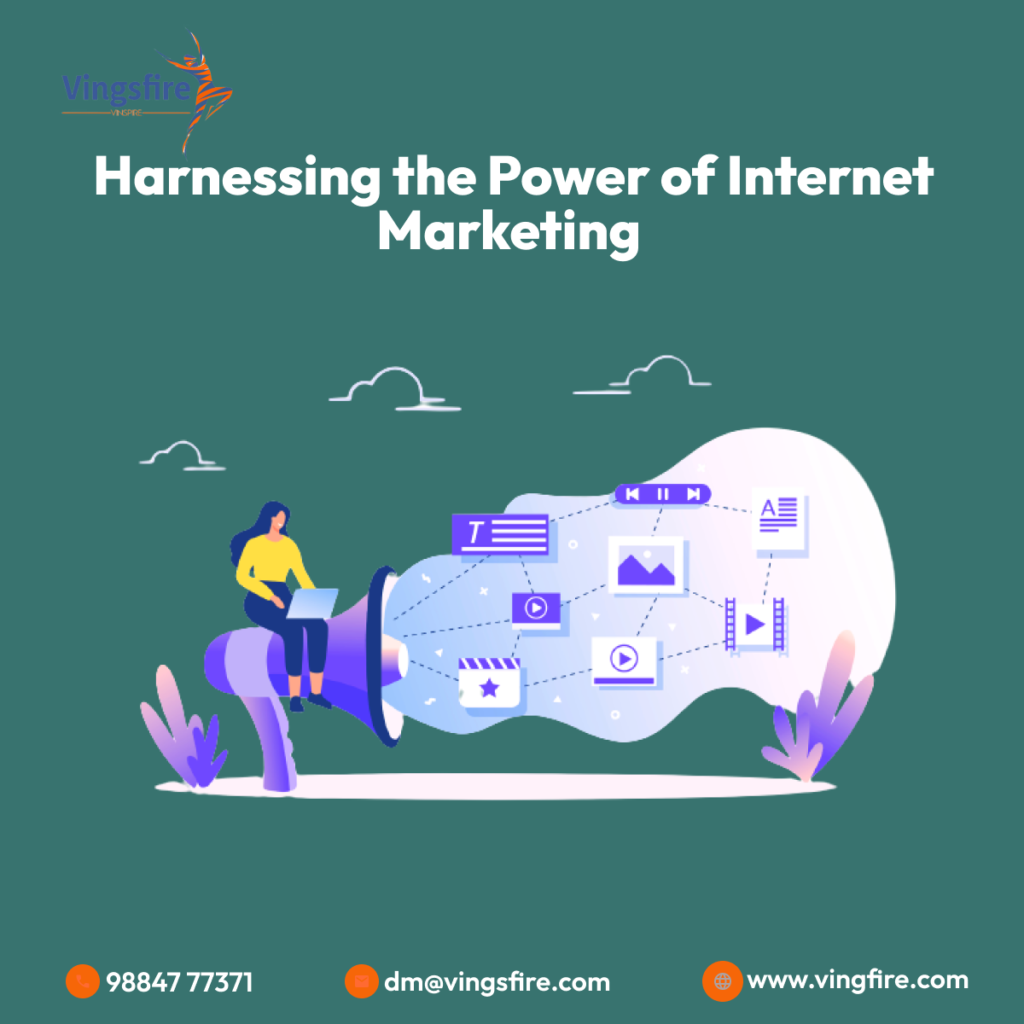
Introduction:
Internet marketing, also known as online marketing or digital marketing, has become a cornerstone of modern business strategies.
With the widespread adoption of the internet and digital technologies, businesses of all sizes have unprecedented opportunities to connect with their audience, expand their reach, and drive growth online.
In this comprehensive guide, we’ll explore the power of internet marketing and provide actionable insights to help you harness its potential to achieve your business goals effectively.
Understanding Internet Marketing:
Internet marketing encompasses a wide range of strategies and tactics aimed at promoting products or services online.
From search engine optimization (SEO) and content marketing to social media advertising and email marketing, internet marketing leverages digital channels and platforms to attract, engage, and convert customers.
By leveraging the power of the internet, businesses can reach a global audience, target specific demographics, and track the effectiveness of their marketing efforts with unprecedented precision.
The Benefits of Internet Marketing:
Internet marketing offers numerous benefits for businesses looking to establish a strong online presence and drive growth.
These benefits include increased visibility and brand awareness, targeted audience reach, cost-effectiveness, measurability, and scalability.
Unlike traditional marketing channels, which often have high costs and limited reach, internet marketing allows businesses to reach potential customers wherever they are, at a fraction of the cost, and measure the impact of their campaigns in real-time.
Key Strategies and Tactics:
There are several key strategies and tactics that businesses can employ to harness the power of internet marketing effectively
Search Engine Optimization (SEO):
SEO is the process of optimizing a website to improve its visibility and ranking in search engine results pages (SERPs). By optimizing website content, structure, and metadata, businesses can increase organic traffic from search engines and attract qualified leads to their website.
Content Marketing:
Content marketing involves creating and distributing valuable, relevant, and consistent content to attract and engage a target audience. Through blog posts, articles, videos, infographics, and other content formats, businesses can establish thought leadership, build trust, and drive conversions.
Social Media Marketing:
Social media marketing involves using social media platforms such as Facebook, Instagram, Twitter, and LinkedIn to connect with your audience, build brand awareness, and drive engagement. By sharing content, participating in conversations, and running targeted advertising campaigns, businesses can reach their target audience where they spend their time online.
Email Marketing:
Email marketing involves sending targeted and personalized email campaigns to nurture leads, build relationships with customers, and drive conversions. By delivering relevant content and offers directly to their inbox, businesses can stay top-of-mind with their audience and encourage repeat purchases.
Pay-Per-Click (PPC) Advertising:
PPC advertising involves placing ads on search engines and other digital platforms and paying a fee each time a user clicks on the ad. By targeting specific keywords and demographics, businesses can drive targeted traffic to their website and generate leads and sales.
Trends and Innovations in Internet Marketing:
Internet marketing is constantly evolving, with new trends and innovations emerging regularly. Some of the key trends shaping the future of internet marketing include:
Voice Search Optimization:
With the rise of voice-activated devices and virtual assistants like Siri and Alexa, voice search optimization has become increasingly important. Businesses need to optimize their website content for voice search queries to ensure they appear in voice search results.
Artificial Intelligence (AI) and Machine Learning:
AI and machine learning are revolutionising internet marketing by enabling businesses to personalize content, predict customer behavior, and automate marketing processes. AI-powered tools can analyze data, optimize campaigns, and deliver personalized experiences at scale.
Video Marketing:
Video marketing continues to grow in popularity as consumers increasingly prefer visual content over text-based content. Businesses can leverage video platforms like YouTube and TikTok to create engaging video content that educates, entertains, and inspires their audience.
Influencer Marketing:
Influencer marketing involves collaborating with influencers and content creators to promote products or services to their followers. By partnering with influencers who have a loyal and engaged audience, businesses can increase brand awareness, credibility, and trust.
Conclusion:
Internet marketing offers businesses unprecedented opportunities to connect with their audience, expand their reach, and drive growth online.
By understanding the key strategies, tactics, and trends in the marketing, businesses can create effective and impactful marketing campaigns that deliver results.
Whether it’s optimizing their website for search engines, creating valuable content, engaging with their audience on social media, or leveraging emerging technologies like AI and video marketing, businesses can harness the power of internet marketing to achieve their business goals effectively in today’s digital landscape.
